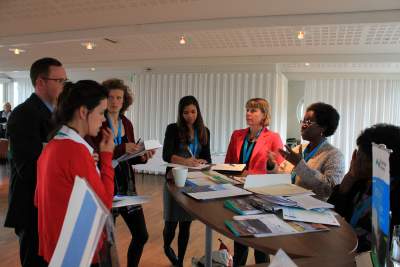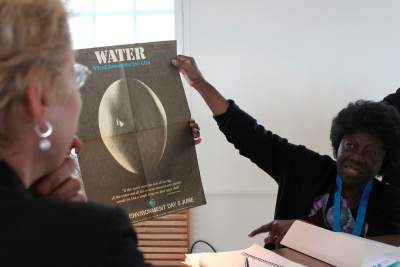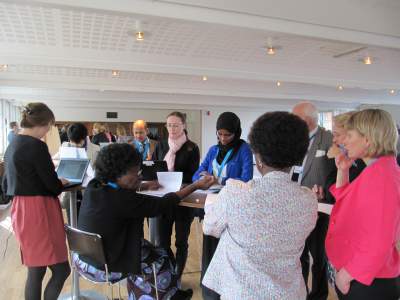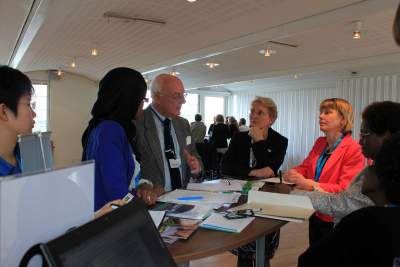GWP Chair Dr Letitia A Obeng, GWP Executive Secretary Dr Ania Grobicki, Swedish Water House Karin Lexén were facilitating the discussion, and the keynote speaker was Dr Letitia Obeng Senior who participated at the Stockholm Conference in 1972.
|
|
|
|
|
|
 |
One of the objectives of the Stockholm+40 Conference is to provide important input on sustainable development and its challenges, based on the debates, perspectives and experiences shared during these days, for Rio+20, the UN Conference on Sustainable Development in Rio de Janeiro in June. Therefore actors from the international community, business sector, civil society, researchers, decision-makers and young people were invited to discuss sustainable solutions in areas of technology, production and living. Stockholm+40 had three main themes:
- Sustainable innovations
- Sustainable production
- Sustainable living
The roundtable engaged participants from various countries and of different ages. Youth participation was a priority of the conference and the engagement of young people among the participants was active. Fragmentation of sectors and treating water as its own sector, were also raised as concerns at the GWP/SIWI/SWH round table discussion. Information and awareness raising campaigns (for example about water footprints) were also brought up as important measures to make people more conscious about water issues. “People care about issues that affect them. As long as they are not affected by water challenges, they do not care”, as someone said giving drought, floods and tsunamis as examples of water challenges. In countries affected by water disasters, people are more aware and concerned. Water is the main medium through which people will feel the effects of climate change. It was concluded that “We have to build on the past for the future!”
Read a report from the session here.
In 1972, the UN Conference on the Human Environment was held in Stockholm. It was the first of a series of conferences held every ten years - in Nairobi in 1982, in Rio de Janeiro in 1992 and in Johannesburg in 2002. It quickly became clear that environmental issues are linked to social and economic development, and in 1987 the Brundtland Commission established the term 'sustainable development' - "development which meets the needs of current generations without compromising the ability of future generations to meet their own needs".
More about Stockholm+40: http://www.sweden.gov.se/sb/d/15451/a/181900

 Dr Letitia E Obeng
Dr Letitia E Obeng Round table participants
Round table participants